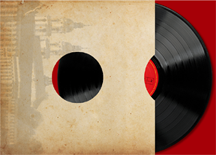Originally posted by Beef Oven!
View Post
I guess you could have a Bruckner thread, but it could get unmanageably long unless there could be subdivision into various symphonies...that might work....
But it's not so bad that discussion of No.2 strays to 6 or whatever if there's a conductor-connection.... it's almost impossible to keep good, wide-ranging discussion "on topic" in some strict way. I'd say steady as she goes for now. Permanently under review
 !
!***
Like you I'd had misgivings about that Venzago 6th. I've played it over (and over) the last few days, often repeating the slow movement which does have extraordinarily variable tempi - at first it seems baffling - doesn't seem to work, like a failed experiment.... But after several hearings it does click, finally I'm with Venzago now. In a way it's laughably obvious - he's matching this wildest, most imaginative yet most concise of Bruckner symphonies with equally wild, rapid and volatile tempi and phrasing, the most extreme in his cycle. The contrast between quick scherzo/v-e-r-y s-l-o-w trio is extraordinary. It really makes you listen. Finale Dynamics are quite tasty too!
Often the 6th's adagio comes as a respite from the drama and speed going on before, or around it - no wonder Venzago wanted to do something close to the opposite - and then find a brief haven in the trio... it's quite something, his 6th.
But heavens - it does take time for the (willing!) listener to see - to hear what he's trying to do. Very exciting when I did...! The sort of reading, so easy for a reviewer to dismiss, that would need more than one listen each time you return to it.
 . And taking your views into account, I’ll hang fire for now.
. And taking your views into account, I’ll hang fire for now.





 Cheers, Jayne!
Cheers, Jayne!



Comment